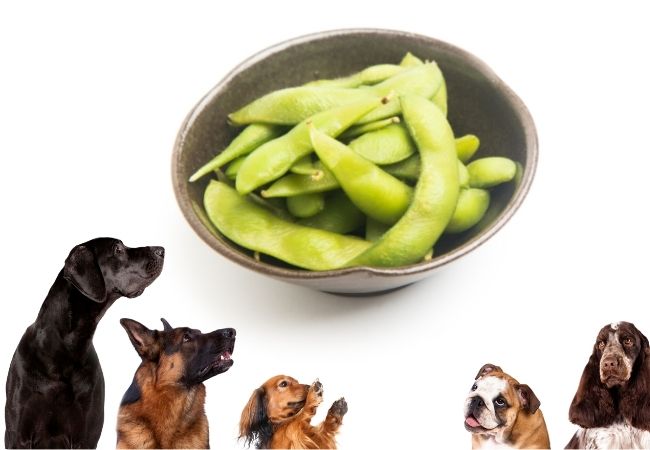Can Dogs Eat Sesame Seeds? Are Sesame Seeds Safe For Dogs?

Yes, sesame seeds are healthy for dogs to consume in moderation, as long as they are not overfed.
Sesame seeds is a source of phosphorus, manganese, calcium, and selenium.
Sesame oil can also be used to treat dry, cracked paw pads. Making your pet’s winter days less uncomfortable.
Even though sesame seeds are beneficial, it is vital to use caution while offering the seeds to your pet.
Contents
Are Sesame Seeds Safe To Eat For Dogs?
Yes, sesame seeds are safe for dogs to consume in small quantities. They’re tiny, and your dog is unlikely to consume a large number of them in a single sitting.
They have a high concentration of vitamins and minerals. However, it is unclear if dogs can digest and absorb the nutrients from the seeds.
We are not aware of any reported poisoning incidents in dogs after eating sesame seeds. Sesame seeds don’t appear to be harmful. They are also too small to be a source of obstruction in the digestive tract.

How Are Sesame seeds Good For Dogs?
The high fiber content makes them good to relieve constipation and keeping your dog’s digestive system regular.
Sesame seeds contain calcium, which helps to build healthy bones. Any dog who has iron deficiency can benefit from eating sesame seeds.
Advantages Of Sesame Seeds
Anti-inflammatory Effects
Sesame oil may have anti-inflammatory properties of its own. Sesamin, a molecule found in sesame oil, may have anti-inflammatory effects.
These findings are based on experiments carried out with mice and a high dose of sesamin.
Any significant anti-inflammatory effect will probably not be observed in dogs if they eat small amounts.
Fiber Content
Selected sesame seeds have a significant amount of fiber.
A sprinkle of smashed seeds may be enough to meet their daily fiber requirements.
It’s important to remember that it’s not yet known if dogs can digest sesame seeds and benefit from the total nutritional value of this fiber source.
Antioxidant Content
Sesame seeds, like sunflower seeds, have a high concentration of antioxidants. Antioxidant is a substance that helps to prevent, repair, or reverse damage done to cells in the body.
Sesame seeds include antioxidants in the form of lignans and vitamin E.
These are good for your dog’s health.
Studies on rats and people have shown that eating sesame seeds improves the antioxidant level.
It is still unknown whether these antioxidants have the same benefits on dogs as they do on humans.

When Are Sesame Seeds Bad For Dogs?
Sesame seeds have a high-fat content, which is the primary source of concern. Some dogs might have digestive issues regarding fatty meals. Especially if they are already on a high-fat diet or have other digestive problems.
Pancreatitis, a painful illness for the dog, can be caused by a high quantity of fat in the body. Dogs suffering from this condition typically vomit and lose their appetite.
They get dehydrated due to the vomiting. They also often need pain medication, anti-emetics, and drinks to recover.
It is not necessary to feed your dog sesame seeds in order for him to live a healthy life. It has been reported that dogs can get allergic to these seeds. Observe your pet’s response and behavior when you give them sesame seeds for the first time.
Consult your veterinarian if you have any concerns about your pet’s health. Or if you have questions about giving them seeds.
Is Sesame Oil Beneficial To Dogs?
It is not recommended to give your dog sesame oil to consume. Pure oils contain far too much fat to be consumed daily by dogs. Sesame oil is high in calories and resulting in your dog gaining weight.
Excess fat can cause certain dogs to get a flare-up of pancreatitis.
How To Feed Sesame Seeds To Your Dog?
If you decide to offer sesame seeds to your dog, it’s a good idea to start with a small amount at first.
Begin with a small amount. Half-teaspoon for a medium-sized dog. Monitor the dog for 48 hours for any adverse reactions. If your dog don’t have any reactions, try giving it a bit more or more often.



